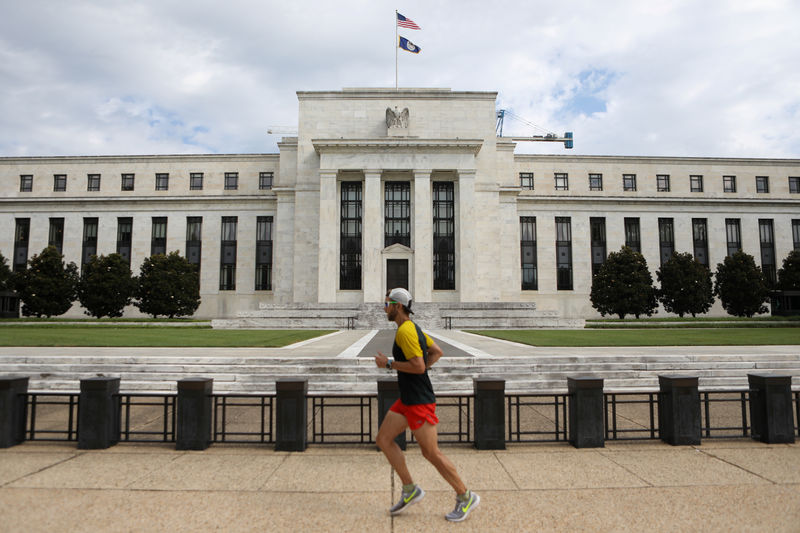CHICAGO (Reuters) - Illinois announced on Tuesday an agreement to tap a new Federal Reserve borrowing program, marking the first state or local government to access funding to address revenue shortfalls due to the economic fallout from the coronavirus outbreak.
Facing high borrowing costs in the U.S. municipal market, Illinois, the lowest-rated U.S. state at a notch above junk, said it entered into an agreement to sell $1.2 billion of one-year general obligation certificates directly to the Fed's Municipal Liquidity Facility (MLF).
The deal between Illinois and the MLF is expected to close on Friday. Sample purchase rates released by the New York Federal Reserve on Monday indicated a 3.83% one-year rate for issuers like Illinois that are rated BBB-minus and Baa3.
Illinois, which pays the largest yield penalty among states, had originally planned to sell the cash flow debt in the market in early May, but postponed a competitive offering citing market conditions.
Legislation passed by Illinois state lawmakers last month allows for the direct sale of debt to the MLF, as well as up to $5 billion in additional borrowing.
Besides Illinois, few governments have announced plans or have legislation pending to use the $500 billion MLF for loans of up to three years. Analysts have said the program, announced in April, was set up to be the lender of last resort and would make the most sense for lower-rated governments.
